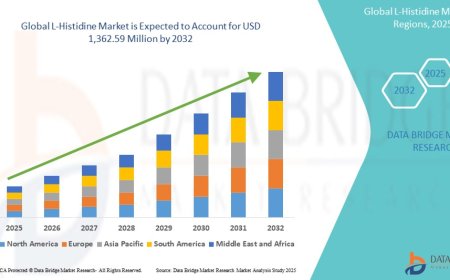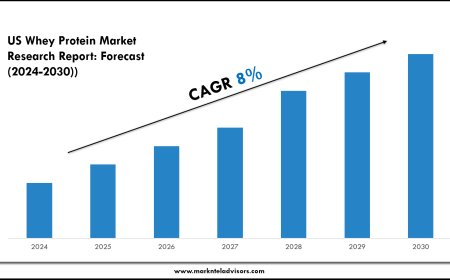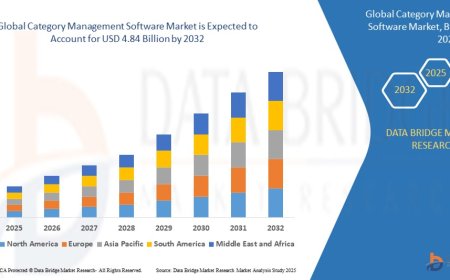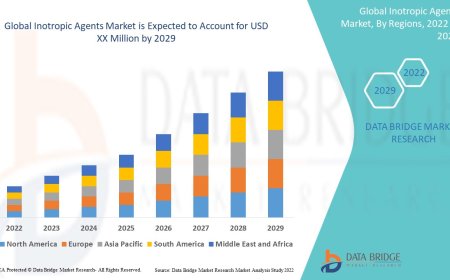Exploring the Future of Real Estate Apps: What Buyers and Sellers Expect in 2025
Explore what the future holds for real estate apps in 2025 and how real estate app development services are aligning with emerging trends.

The digital transformation of the real estate sector has reshaped how property is bought, sold, and rented. As we look ahead to 2025, the expectations of buyers and sellers continue to evolve, influenced by technological innovation and a growing demand for seamless digital experiences. Real estate app development is no longer a luxury but a necessity for businesses striving to stay competitive. Whether you're a real estate agency, a property aggregator, or a startup planning a Zillow clone, understanding what users want is key to delivering value. In this article, we explore what the future holds for real estate apps in 2025 and how real estate app development services are aligning with emerging trends.
The Growing Importance of Real Estate Apps in a Post-Pandemic Market
The global pandemic accelerated the shift toward digital property transactions. Buyers became comfortable with virtual tours, remote documentation, and mobile-first browsing, while sellers began to rely more heavily on apps to list and market their properties. In 2025, this trend is only expected to deepen. Mobile apps offer unparalleled convenience, real-time updates, and enhanced communication between parties involved in a transaction. As more users prefer online channels over traditional in-person interactions, businesses are partnering with a real estate app development company to build custom solutions that cater to their target audience.
What Buyers Expect from Real Estate Apps in 2025
Modern buyers are more informed and tech-savvy than ever before. They expect intuitive, feature-rich apps that offer value beyond just property listings. In 2025, buyers will continue to demand AI-driven property recommendations tailored to their preferences, budget, and lifestyle. Advanced filters, neighborhood insights, walkability scores, and local school ratings will become standard.
Interactive 3D and AR-enabled virtual tours will be a key expectation, allowing buyers to visualize spaces as if they were physically present. Moreover, integration with digital mortgage calculators, instant pre-approvals, and chatbot-based customer support will streamline the decision-making process.
Security and transparency will also play a pivotal role. Buyers want to access verified property data, view transaction history, and feel confident in the authenticity of listings. Trust signals like verified seller badges, legal documentation previews, and secure digital signatures will become essential components in real estate app development.
What Sellers Expect from Real Estate Apps in 2025
Sellers are seeking platforms that help them reach potential buyers faster and more efficiently. In 2025, real estate apps must offer smart tools for listing optimization, including AI-generated property descriptions, automatic price suggestions based on market trends, and video walkthrough upload capabilities.
Real-time analytics will become a must-have feature. Sellers want to know how many users viewed their listings, how long they stayed, and what actions they took. This data-driven feedback helps refine pricing and marketing strategies.
In-app communication tools that connect sellers directly with buyers or agentswithout the need for third-party appswill become more common. Moreover, sellers expect comprehensive customer support from the platform provider or the real estate app development company that built the solution.
How AI and Big Data Are Shaping Real Estate App Development
Artificial intelligence and big data analytics are at the heart of innovation in real estate app development. In 2025, AI will continue to refine property matching algorithms, predicting what types of homes buyers are likely to choose based on behavior and preferences. These smart systems will also forecast property values, rental yields, and investment potential, helping both individual buyers and institutional investors make informed decisions.
Big data allows apps to tap into public records, zoning laws, market trends, and demographic data to provide users with a comprehensive picture. Whether it's a Zillow clone or a niche-focused property rental app, integrating AI and data analytics is becoming a non-negotiable aspect of real estate app development services.
The Rise of Zillow Clone Apps and Niche Platforms
The success of apps like Zillow has inspired a wave of entrepreneurs to develop similar platforms tailored to specific regions or property types. A Zillow clone isn't just a copy of an existing platformit is often customized with unique features, localized content, and niche focus areas like luxury homes, vacation rentals, or green buildings.
In 2025, we can expect more demand for such clones, especially in emerging markets where digital property solutions are still developing. By hiring a reliable real estate app development company, businesses can build white-label or custom Zillow clone apps with advanced capabilities like AR tours, lead generation tools, mortgage integration, and CRM systems.
How Real Estate App Development Services Are Adapting
Real estate app development services have become more strategic, offering end-to-end support from market research to app launch and beyond. In 2025, top development companies will prioritize user experience (UX), ensuring the app is not only functional but also intuitive, responsive, and accessible across all devices.
Cross-platform development using frameworks like Flutter or React Native is gaining popularity, allowing faster deployment and cost efficiency. Security remains a key priority, with end-to-end encryption, multi-factor authentication, and GDPR compliance becoming standard practice.
Moreover, scalability and performance optimization will be central to any real estate app development strategy. With thousands of listings and users, apps must support high traffic without compromising speed or reliability.
The Role of Blockchain and Smart Contracts
Although still in early stages, blockchain technology is making its way into real estate app development. In 2025, we may see wider adoption of blockchain for property records, identity verification, and smart contracts. These digital agreements can automate transactions and ensure compliance without intermediaries, reducing time and cost.
Real estate apps leveraging blockchain can build trust among users by offering transparent records of ownership, past sales, and dispute resolution mechanisms. This trend will especially appeal to cross-border buyers and sellers dealing with complex regulations.
Conclusion: The Future Is Mobile, Intelligent, and User-Centric
As we move deeper into 2025, real estate apps are becoming more than just digital catalogsthey are intelligent platforms that facilitate the entire property transaction lifecycle. Buyers expect personalization, convenience, and transparency, while sellers want speed, data insights, and control. For businesses aiming to enter or expand in this space, investing in professional real estate app development services is essential.
Whether you plan to build a custom solution or launch a Zillow clone, partnering with a skilled real estate app development company ensures your app is future-ready. By embracing emerging technologies and focusing on user needs, these apps will continue to revolutionize how we buy, sell, and rent property in the years to come.































